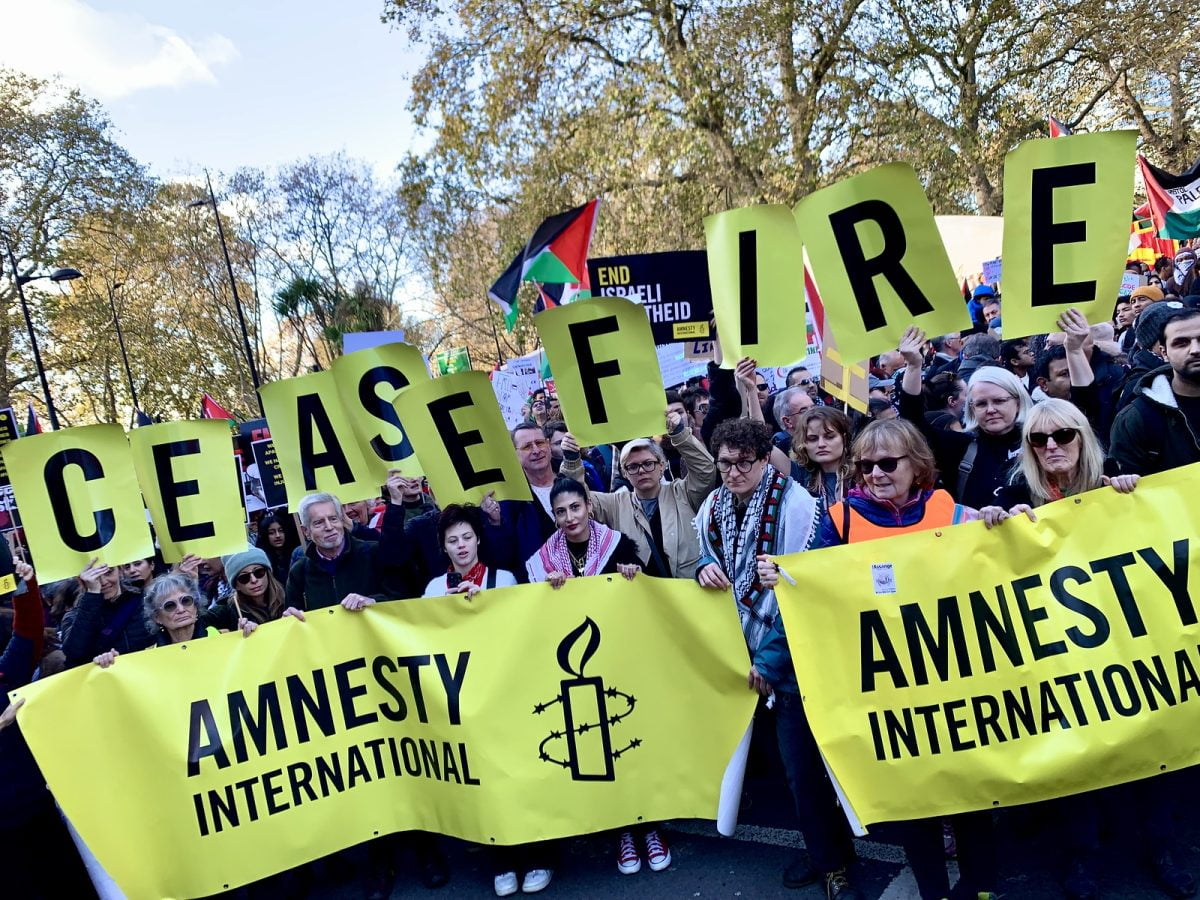
Amnesty International at the Ceasefire Now demonstration in London on November 11, 2023 to urge all members of the international community to come together to demand an immediate ceasefire by all parties in the Israel-Gaza conflict.
Amnesty International took part in the Ceasefire Now demonstration in London on November 11, 2023 to urge all members of the international community to come together to demand an immediate ceasefire by all parties in the Israel-Gaza conflict.
Email your MP and urge them to call for a ceasefire now
We need to urge our politicians to call for an immediate and permanent ceasefire, and unimpeded humanitarian access to Gaza.